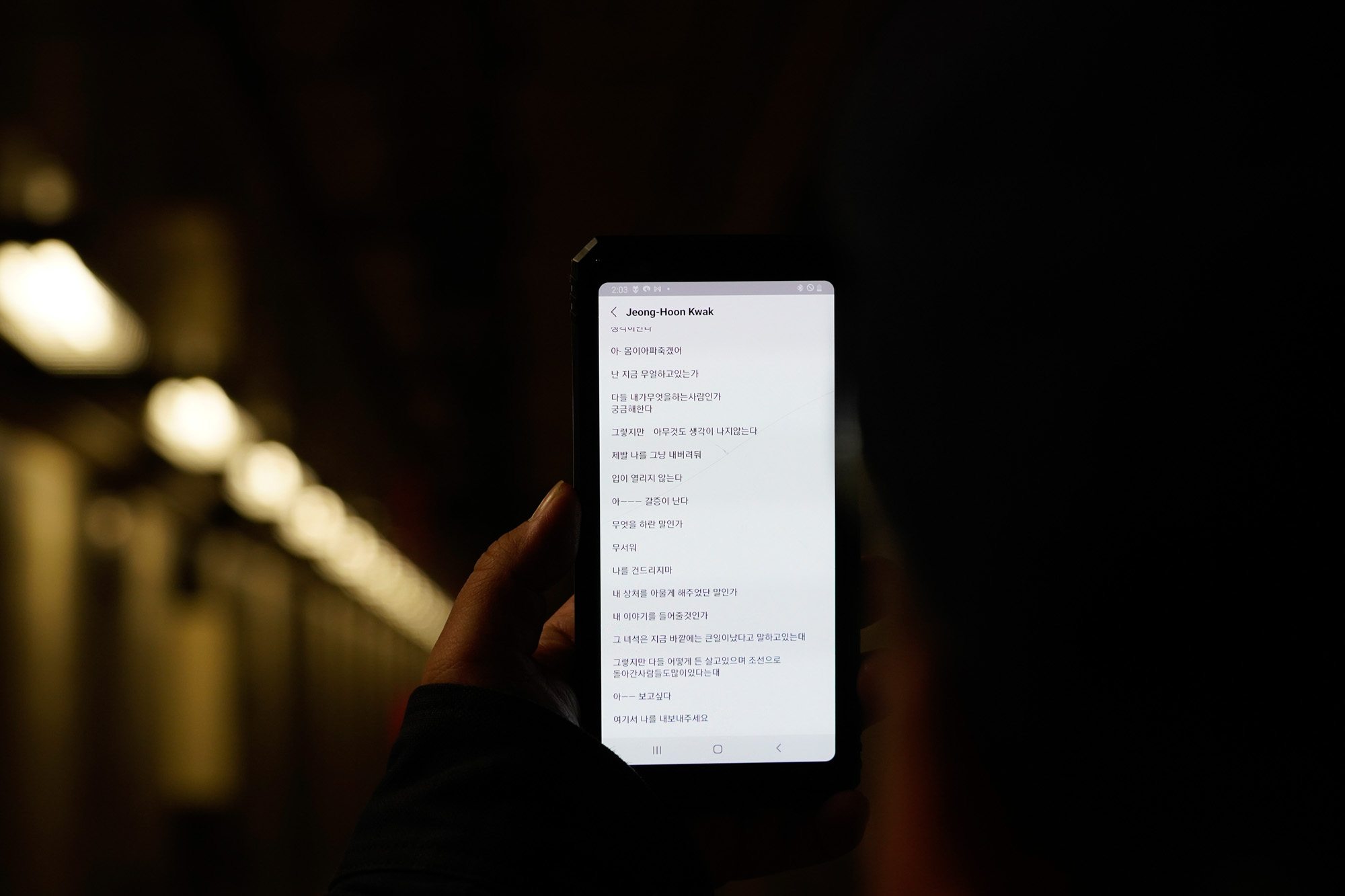Tokyo Government Censors Film About Koreans in Pre-War Japan
By HG Masters

YUKI IIYAMA, In-Mates Online Ver., 2021, still from single channel video with sound: 26 min 50 sec. Courtesy the artist and WAITING ROOM.
On October 28, artist Yuki Iiyama announced that the Tokyo Metropolitan Government had blocked the special screening of a short film that depicts the stories of Korean patients held in the psychiatric ward of a Japanese hospital in the decades before World War II as well as the Kantō Massacre. The film, titled In-Mates (2021), was set to be screened in Iiyama’s exhibition about how society treats people with mental disorders, “We Walk and Talk to Search Your True Home,” through November 30 at the Tokyo Metropolitan Human Rights Plaza.
The 26-minute film In-Mates was inspired by the stories of two Korean patients admitted in the 1930s to the Oji Brain Hospital, which was destroyed in the 1945 fire-bombing of Tokyo. Both Korean patients died there. In-Mates also features “Zainichi” rapper FUNI, who relates his struggle as a 2.5-generation ethnic Korean in Japan with the Korean community that was massacred by vigilante groups, police, and military following the Great Kanto Earthquake on September 1, 1923.
The film was originally commissioned by the national arts body, Japan Foundation, for the online exhibition “11 Stories on Distanced Relationships: Contemporary Art from Japan,” but the Foundation refused to screen it, allegedly due to “violent remarks and scenes that could lead to unproductive discussions over historical awareness.” The film features a historian saying that “the massacre of Koreans is a fact.”
The municipal government’s human-rights division stated that the reason for censoring the film in Tokyo was that it deviates from the exhibition’s theme of people with mental disabilities. However, in emails that Iiyama obtained between the division and the center hosting the exhibition, the government questioned the use of “footage that says the massacre of Korean residents happened in spite of the Tokyo governor's position.” Yuriko Koike, the incumbent Tokyo governor, is a massacre denialist who refuses to acknowledge the annual commemoration on September 1 for the more than 6,000 ethnic Koreans and leftists killed. Koike’s past statements have included that “historical facts are open to interpretation.”
The incident is part of the larger “history wars” within Japan and between Japan and both China and South Korea, as right-wing groups and political leaders of the modern nation have increasingly denied crimes committed by the Empire of Japan during its colonialization of Asian countries and during the Second World War. A rightwing backlash to—and subsequent censorship of—an exhibition containing a depiction of Korean comfort women led to the partial closure of the 2019 Aichi Triennale in Nagoya.







